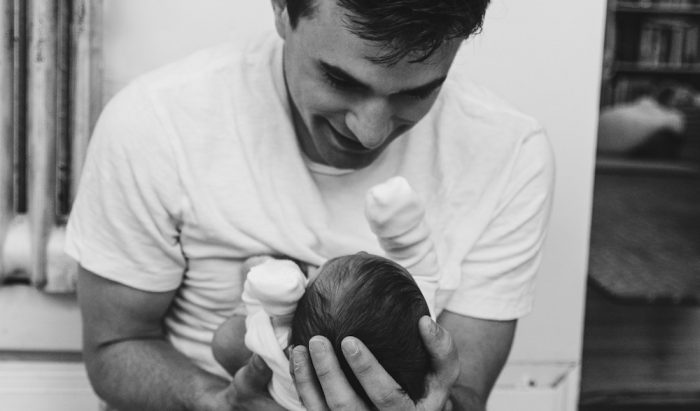Angry father.
Doesn’t that bring up a scary and oppressive image?
As a father in the 21st century, I’ve learned that an authoritarian approach to parenting is definitely out of style, and, if you dig deeper, the latest in research confirms that there are many negatives to the “my way or the highway” approach.
Too bad, because this is the path of least resistance. Any father knows how hard it is to restrain your anger sometimes, but it’s a no-brainer that we should act on our highest values, go for the long view, and not operate from our animal instincts in the moment.
For example: last night, after a day of great connection and activities with his mom and then pizza night and a TV show, our five-year-old melts down (he didn’t want salad on his plate). Katie and I keep our cool and use the tools from our “Positive Parenting” classes. He continues to act like a two-year-old (we have one of them, too) and throws a plate. We still stay composed and connected, but I’m starting to cook inside.
Some more attempts at communication, and he screams and pushes a chair into his little brother. That was the trigger for both Katie and I, and if you’re a parent of little ones you know about triggers. Katie sends the older one to his room, and I slam my hand down on the table.
Fun night.
It’s not easy being a father in the post-modern age when it is definitely uncool to hit your kid in the heat of the moment—or any other time, for that matter. And the truth of it is, no one ever really wants to. The impulse to lash out is a result of our own emotions becoming bigger than our ability to control them and the nervous system kicking in with the fight-or-flight response, preparing us for action.
If we know how to self-regulate—that is, be aware in the moment of what we are feeling inside and consciously choosing our response—we’re all happier. Our family connection is strengthened, not damaged, and our kids learn important lessons about how to deal with their own emotions and how to be effective in difficult or challenging situations. Our kids watch us more than they listen to us, so we have the job of modeling what good “human-ing” looks like.
The trick, as a parent who does have strong feelings, is to learn how to become mindful and competent at being a human being rather than an animal. Because we are both, of course.
So as fathers, we have a few things to realize and tasks to take on.
We have to realize that we’re wired the way we are wired and practice self-acceptance and, dare I say it, self-love. We were raised the way we were raised, and those patterns will run in the background as our default program. It will show up as the automatic reactions we have in stressful situations. You may have heard the phrase “The sins of the father are visited upon the son” (Euripides, 485-406 BC). Or, as my dad would say, “We come by it honestly.”
But who wants to live in the default world? We want to be the captains of our own ship, not operating under some distant and tyrannical rule!
And then you find yourself doing just what your father would have done when your toddler is pushing your buttons. Or you start blaming your father for how he raised you now that you “know better.”
Let’s get real: being a dad is probably the hardest—and definitely the most important—job we have, or ever will have. It’s obvious that it is good to get better at it, to do better than our predecessors, and heal our own wounds so we get to the place inside where we can say, “Thank you, Dad”—and mean it.
Parenting is rich and fertile ground for self-discovery and an opportunity to do our part to give the world men and women who will live with integrity. Men and women who will know and love themselves. Men and women who will know how to act on more than their reactions and reflexes, who know how to consciously choose.
Our kids will become who they are because of us and in spite of us, so let’s make room for that truth inside ourselves too.
I once had a friend who said, “Any man who puts food on the table for his kids is a hero.” It’s true in many ways—to do the many small and important tasks that may be largely invisible and are unrelenting in their need to be filled.
So ease up on yourself and celebrate your wins. Notice and acknowledge all the things you do well or at least pretty well. Otherwise, parenting becomes an exhausting and endless list of how we don’t measure up. Ugh.
On the other hand, it’s important to not make too much of our role. There are many great kids who grew up without fathers or with fathers who were not emotionally present (or worse) and who ended up being massive contributors, creators, producers, and visionaries.
Overcoming adversity and finding strength in our wounds—these are important in our path as men.
Equally important is understanding and giving healthy outlets to the animal we are, so that we have the mindfulness to keep our cool when things get hot and stressful.
Learning to accept, honor, and control ourselves is a deep and worthy practice. And then, through mindful action, this inner quest becomes our active contribution to our child (and consciousness) raising that will help make our society better and our world healthier.
~
AUTHOR: ANTHONY MCMORRAN
IMAGE: KELLY SIKKEMA/UNSPLASH

No comments:
Post a Comment